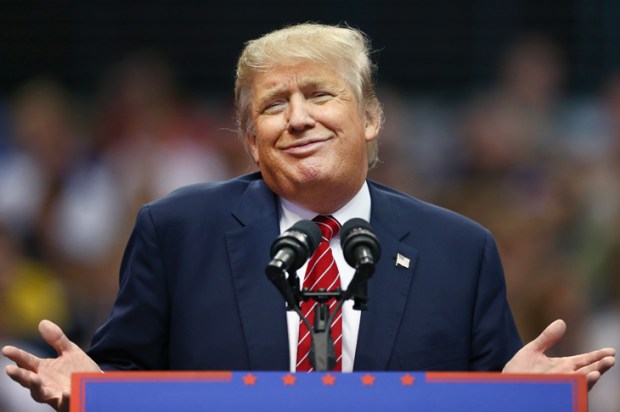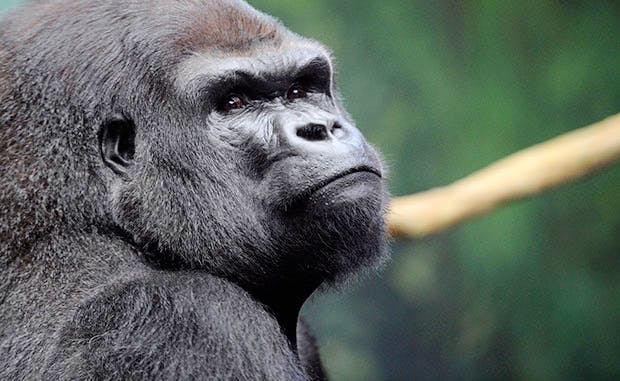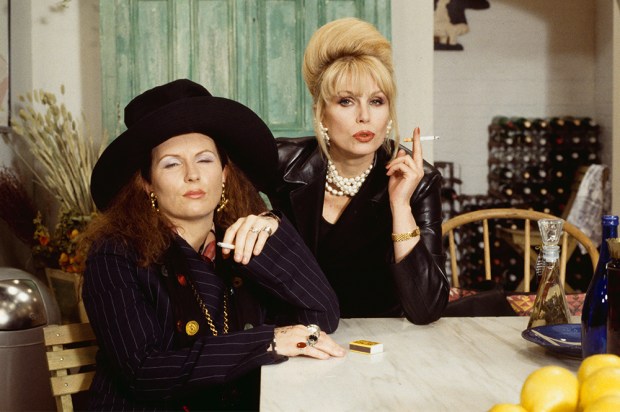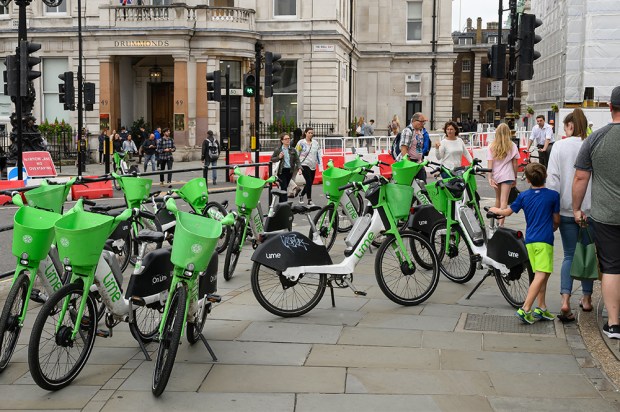Novelists can’t merely tell cracking tales. We’re supposed to save the world. At the University of Kent, a student implored me to inscribe The Mandibles with instructions for ‘how to keep this from happening’ — for the feverish young man now vowed to devote his life to preventing my new novel’s debt-fuelled near-future financial collapse. And I thought I was just doing a book signing. I wrote, ‘To keep this from happening, pay your bills. To cash in on this happening, get as deeply into debt as possible.’ The next student proffered a tiny spiral notebook, in which I was to jot ‘three things that are really important’. In desperation, I scribbled, ‘The freedom to get away with something, to make your own mistakes, and to do anything that doesn’t hurt other people.’ Sometimes it’s fortunate to have thought out libertarianism in advance.
Another audience member at that event urged me to tackle identity politics in fiction. But this infighting phenomenon may be going the way of the incandescent light bulb. Mark Lilla’s astute The End of Identity Liberalism endured on the New York Times ‘Most Popular’ list for a fortnight. At last, American progressives are encouraging one another to appeal to their compatriots’ common causes and shared aspirations. The sudden currency of ‘white nationalism’ demonstrates how identity politics has backfired — inexorably spawning a white identity movement, since you can’t politically weaponise being black or disabled or trans without white lives mattering, too.
Post-election, the president of Massachusetts’ Hampshire College removed the school’s American flag — to some students a symbol of hatred — the better to focus on ‘racist, misogynistic, Islamophobic, anti-immigrant, anti-Semitic, and anti-LGBTQ rhetoric and behaviours’. But both that recitation and the petty flag removal already feel dated. Perhaps the best aspect of the flabbergasting US election results is the left waking up to the fact that we have proper problems — big problems, which we needn’t trump up, like a rash, ill-informed, inexperienced hothead headed for the White House. Lo, some tempests rage outside the constraints of teacups.
Nevertheless, I’ve already maxed out on the Democrats’ apocalyptic hair-tear (after ripping out a few tresses myself). It’s a toss-up which has grown more off-putting, the bumbling and bluster on Fifth Avenue, or the conniption fits among Clinton supporters. With such high concentrations of righteous indignation, America’s coastal states might spontaneously combust. I was much more moved by my brother’s dolorous admission that, having volunteered as poll worker in Iowa, he felt like ‘an enabler’.
Asked in a recent interview how I felt about being called racist on social media, I said it made me angry. But that label is now thrown around so carelessly that maybe I should laugh it off. ‘You’re a racist’ decodes as ‘I disagree with you,’ or more bluntly, ‘I don’t like you.’ Left-wing gotcha sensitivity is often aimed at people like me — a fellow social liberal. But when Trump’s more unsavoury supporters are sieg-heiling from the woodwork, branding the broadly fair-minded as bigots depreciates the tag. See last month’s ghastly Facebook reference to Michelle Obama as an ‘ape in heels’: there are still real racists. Save the pejorative for when you truly need it.
Yet lately I sense that my person triggers a strange chemical reaction in some folks, whom I can enrage with ‘Hello’. I did a reading at Waterstones for Word Factory, a literary nonprofit run by the beguiling Cathy Galvin. During the Q & A, one woman thanked Cathy for her efforts, but then huffed that, on the other hand, reference to ‘ramming the short story down people’s throats’ wasn’t helpful. She was referring to my professed scepticism that public promotion of an unpopular form would succeed. ‘I only meant,’ I responded mildly, ‘that you can’t force people to like something that they don’t like.’ I had managed to arouse umbrage during a celebration of the short story. Maybe I should stay home.
Our era is obsessed with hierarchy: who’s disadvantaged, who gets a leg up. Fairness matters, but there are other worthy absorptions: beauty, mortality, architecture, fashion’s invention of the ‘coatigan’. What a relief, then: an evening at Soho’s Pizza Jazz Express, where the clear, lyrical tones of Christine Tobin set Paul Muldoon’s poetry to music. For once the only ‘privilege’ under discussion was that of having been present.
I learned a new word: quietism (‘devotional contemplation and abandonment of the will … calm acceptance of things as they are without attempts to resist or change them’). The column citing the term was urging Trump detractors to resist this temptation. But after the uproar of 2016, I think quietism sounds wonderful.
The post Diary appeared first on The Spectator.
Got something to add? Join the discussion and comment below.
Get 10 issues for just $10
Subscribe to The Spectator Australia today for the next 10 magazine issues, plus full online access, for just $10.
You might disagree with half of it, but you’ll enjoy reading all of it. Try your first month for free, then just $2 a week for the remainder of your first year.















Comments
Don't miss out
Join the conversation with other Spectator Australia readers. Subscribe to leave a comment.
SUBSCRIBEAlready a subscriber? Log in